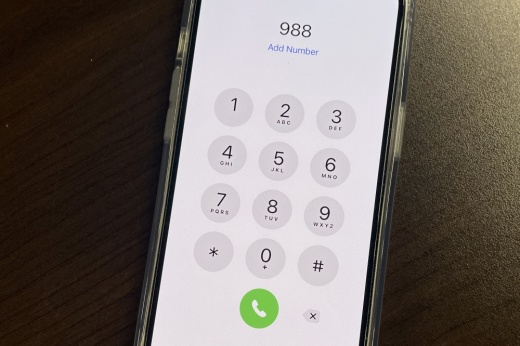The new number will connect Texans to the National Suicide Prevention Lifeline, which is also accessible at 800-273-8255. This will not replace the original Lifeline number. Instead, 988 is meant to be more accessible during mental health emergencies, according to the federal Substance Abuse and Mental Health Services Administration.
“The new 988 number makes it easier for people in crisis or emotional distress to get immediate assistance and connect to mental health resources within their communities,” said Sonja Gaines, Texas’ deputy executive commissioner of Intellectual and Developmental Disability and Behavioral Health Services.
988 was launched nationwide July 16.
Texas Health and Human Services announced in February 2021 that it would receive over $180,000 in funding from SAMHSA. The money will help support and expand Lifeline call centers in Texas.
Initiatives include helping centers prepare for additional callers, rolling out text and chat features, training staff and improving data collection.
According to an HHS spokesperson, Texas has four Lifeline call centers that are contracted by HHS: the Harris Center, Integral Care, Emergence Health Network and MMHR of Tarrant County. A fifth center, the Suicide and Crisis Center of North Texas, is a volunteer call center.
Centers must follow specific standards and be certified, accredited or licensed in order to join the Lifeline network, according to the February 2021 funding overview.
Nearly 60,000 Lifeline calls were answered at Texas call centers in 2021, according to the spokesperson. This is a 92% increase from 2018.
Texas operators also answer the fourth-highest number of calls, following California, New York and Florida. The spokesperson said HHS expects an increase in calls following the launch of the “new, easy-to-remember 988 number.”
According to the Centers for Disease Control and Prevention, nearly 46,000 Americans died by suicide in 2020. This is equal to one death every 11 minutes.
The mental health version of 911
Many people call 911 during mental health crises, according to NPR.
As a result, law enforcement agencies spend about 20% of their time responding to mental health emergencies, psychologist Benjamin Miller told NPR. But police officers are not always trained to handle these situations.
The U.S. Bureau of Justice Statistics reported that roughly 43% of state and 23% of federal prisoners had a history of mental health issues in 2016.
People who call or text 988 will speak to someone from a Texas call center. If a center is too busy, calls and texts will be routed to one of 16 backup centers across the nation. A chat function is also available.
HHS plans to have at least 90% of calls and 80% of texts/chats answered in Texas by June 30, 2023, the funding overview said. The free services will be available 24 hours a day.
Over 3 million Texas adults have a mental illness, according to Mental Health Texas. More information and resources can be accessed here.





